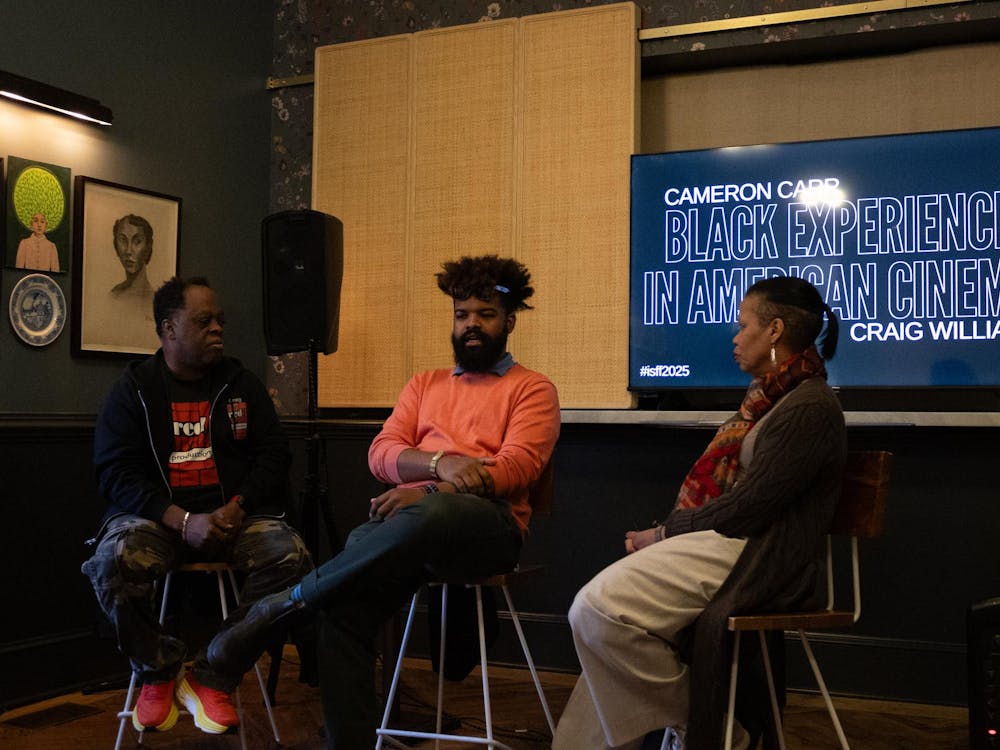Kendrick Lamar hails from Compton, Calif., known as the Mecca of gangster rap and a hotbed of drugs and gang violence. good kid, m.A.A.d city is his introduction to the world, a kunstlerroman that details his coming of age in one of America’s most dangerous cities. It is a stunningly cohesive effort for such a young artist. The skits throughout the album tie the narrative together in a manner that hearkens back to the golden age of hip-hop. Lamar has managed to craft hip-hop’s most buzzed-about album in recent memory without a stand-out radio single.
The contradiction in the album’s title and within Kendrick himself is a major part of what makes the up-and-comer the most compelling story in rap music. Kendrick does not drink alcohol or take drugs and at times offers a harsh critique of his generation’s mindless hedonism. At the same time, he fully embraces his city, flaws and all. Nowhere is this more apparent than on the album closer “Compton,” which finds him rapping alongside his mentor, hip-hop icon Dr. Dre.
Kendrick combines the socially conscious rap of a young Talib Kweli, the aggressive flow of DMX in his heyday, the technical skill of Eminem and Wiz Khalifa’s ear for melody. It is no mistake that he is being hailed as hip-hop’s next superstar. “Swimming Pools (Drank)” is the album’s most radio-friendly track, but listen closely and the verses find him touching on the dangers of alcoholism and debauchery.
“Sing About Me, I’m Dying of Thirst” is the album’s unmistakable centerpiece, a 12-minute epic that explores Compton from several different characters’ perspectives in a manner more reminiscent of James Joyce than of any recent rap release. The chorus finds the young rapper pleading that his legacy and that of his peers will be celebrated in the case of his untimely death. This plea is especially interesting considering rappers’ well-documented history of questioning whether hip-hop itself is a dying art form.
In the last year Lamar has gone from playing at the University’s Student Activities Building to touring with Drake and A$AP Rocky and receiving co-signs from many of the biggest names in music, including Lady Gaga.
The album’s cover is a gritty Polaroid showing a baby Kendrick surrounded by his male family members. On the table in front of them his baby bottle stands next to a 40-ounce bottle of malt liquor. Black bars cover the other men’s eyes as the innocent child’s eyes stare into the camera, a good kid surrounded by madness, struggling to make sense of it all.
In the skits that appear throughout the album, his real friends and family members play themselves. This unabashed vulnerability is fascinating in a work that both celebrates and questions what it means to be authentic. Tracks such as “Real,” for example, explore hip-hop’s fascination with being genuine.
good kid, m.A.A.d city is an album that rewards repeated listening. Indeed, listeners will find themselves discovering new intricacies and layers of meaning as they return to these songs. It is far too early to speculate where this album belongs in the context of hip-hop in general, but there is no doubt Kendrick has crafted one of the most interesting releases in the last few years. Kendrick has spoken about a dream he had of the late Tupac Shakur visiting him and instructing the young rapper, “Don’t let my music die.” Whether or not Kendrick is hip-hop’s savior, this album forms a captivating love letter to his city, his friends and family and the genre of music he champions.






